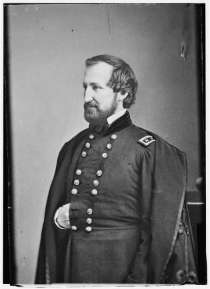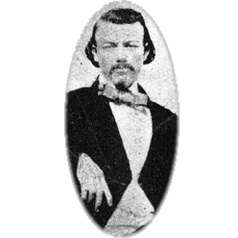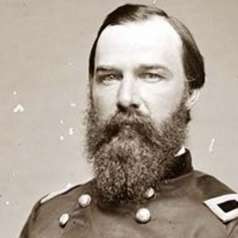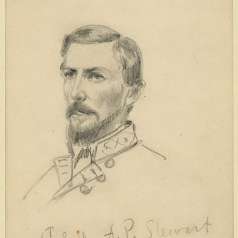
William S. Rosecrans graduated from the U.S. Military Academy at West Point in 1842, Rosecrans served 12 years as an army officer and then resigned to become an architect and civil engineer in Ohio and Virginia. Returning to active service upon the outbreak of the Civil War, he served under Gen. George B. McClellan and Gen. John Pope, each of whom he succeeded when he moved east to larger commands.
During 1862 Rosecrans led Union forces to victory in the battles of Iuka and Corinth, Miss., after which he moved on to Nashville, Tenn., to take command of the Army of the Cumberland. He fought well at the intense but indecisive Battle of Stones River, or Murfreesboro (Dec. 31, 1862–Jan. 2, 1863).
About this time, Rosecrans' earlier aggressive quality seemed to give way to an excess of caution and a disposition to worry and to argue with his superiors, who he felt were hampering the effectiveness of his command. Finally, on June 23, 1863, after six months of delay in the face of official pressure to take the offensive, he began an advance that forced Confederate Gen. Braxton Bragg into Chattanooga, Tenn., then maneuvered him out of the city without a battle. There his customary hesitancy vanished, and he followed Bragg, who turned upon him and precipitated the bloody Battle of Chickamauga (September 19–20). An ill-advised move opened a gap in Rosecrans' lines and allowed Southern forces to pour through and put to rout part of his army, which was driven back into Chattanooga. Only the strong stand of Gen. George H. Thomas on the North's left averted complete defeat. Gen. Ulysses S. Grant was now charged with the relief and defense of the besieged city; Grant promptly removed Rosecrans, ending any important role for him in the war.
Rosecrans resigned his army commission in 1867, serving as minister to Mexico during the next two years. Later he represented California in the U.S. House of Representatives (1881–85) and served as register of the U.S. Treasury (1885–93).
Tools
Key Facts
- Took command of the Army of the Cumberland in 1862.
- Fought well at the Battle of Stones River.
- Captured Chattanooga, but his pursuit of Confederate forces resulted in the bloody Battle of Chickamauga; afterward, Grant relieved him of command.







